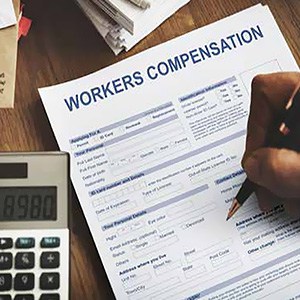Helpful Legal Articles
If you are released to return to work full duty then you should at least attempt to return to work, even if you do not feel able to do so. If you try to work and cannot perform your job duties, advise your employer if you experience additional pain while working. If you are “written up,” for failing to perform…Read More
It is common for the workers’ compensation carrier to pressure employers into providing a light-duty return to work program, even when employers practically do not have such work to offer. If your employer is only able to find a few hours of light-duty work for you to perform then you are entitled to receive continued temporary disability benefits which are…Read More
If your employer does have a light-duty work program, then you must attempt to return to work, since your temporary disability benefits will be terminated. Unless you have secured a position with another employer, it is advisable to make yourself useful to the company when you return to work. However, do not be afraid to refuse to perform a task…Read More
The workers’ compensation carrier may encourage the physician to release you back to work, at least on a light-duty basis. While you are still receiving medical treatment, you should provide the doctor with a copy of your job description. You should explain exactly what job duties you feel that you cannot perform due to your injury. If the doctor releases…Read More
If you are a high wage earner, your temporary disability benefits are capped at the State maximum rate. In 2020, the maximum rate in New Jersey is $945/week. Some employers may voluntarily offer to pay the difference between the workers’ compensation rate and your salary. However, they are not required to do so. Speak with your human resources department to…Read More
To determine whether the workers’ compensation carrier is paying you the correct temporary disability rate you must first calculate your “average weekly wage,” including overtime. Take a look at your paystub. Do you make the same amount every week or does your salary vary? If you earn an annual salary, your weekly wage should be the same every week. Your…Read More
After an accident or injury occurs at work, it is insufficient to merely advise your supervisor that you do not feel well and need to take off a few days to recover from your injuries, to qualify for temporary disability benefits. Of course, if your company has a sick leave policy, you may be entitled to receive sick pay, even…Read More
Temporary disability benefits are payable when the employee is out of work for seven consecutive days, although it often takes longer for the insurance carrier to administer the benefits. In other words, if you are sent back to work by your doctor in less than a week, you are not entitled to receive workers’ compensation lost wage benefits. Once seven…Read More
The workers’ compensation system in New Jersey was designed to provide injured workers with prompt medical attention and wage replacement benefits when they are disabled due to a work injury. There is no need for an employee to prove that the employer committed negligence in order to collect benefits. As long as the injury occurred during the course of employment,…Read More

Under the New Jersey Workers’ Compensation Act, you are entitled to receive medical, temporary, and sometimes permanent disability benefits after suffering a workplace injury. But how do you access these benefits? First off, it’s important to know that you don’t need to prove that your employer is at fault to collect benefits. Under the New Jersey law, any injury that…Read More